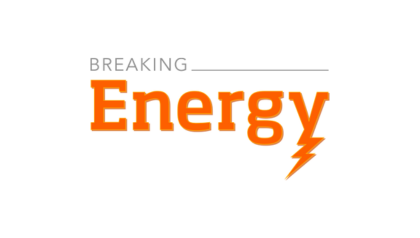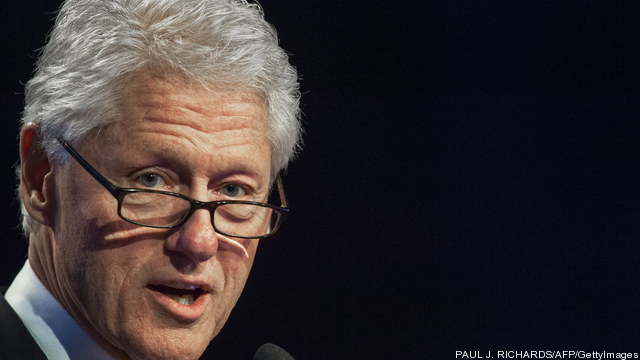
The Obama Administration is calling for continued government support of wind energy, touting a new report showing that it accounted for nearly a third of new electric capacity added in the United States last year. A report released Tuesday by the Department of Energy says the U.S.wind power industry is “facing uncertain times,” growing strongly but confronting the possibility of an expiring tax credit that would deal it a severe blow. Roughly $14 billion was invested last year in the industry, which accounted for 32% of new U.S. generating capacity, the report says. The U.S. has also become a major player on the manufacturing side, producing 67% of new wind turbine equipment used domestically last year.
Elections 2012
Sign up and get Breaking Energy news in your inbox.
We will never sell or share your information without your consent. See our privacy policy.
The most recent Wall Street Journal/NBC election poll found very few people who are undecided about their choice for president, which means the fight to win swing states will be ferocious. Could energy issues play a role in the outcome?
Clean energy advocates say the possibility has become a reality in at least one of those states – Iowa – and it promises to influence undecided voters elsewhere, as well. Keep reading →
Bill Clinton Urges Focus on Clean Energy While Musk Admits to Tough Times at Tesla
By Felicity Carus
Energy efficiency and solar are the low hanging fruit for American companies both at home and overseas, former President Bill Clinton said yesterday.
“We should pick the low hanging fruit. It always begins with efficiency. We’re much more energy efficient than we used to be but we have not made a serious attempt to get it to scale,” Clinton said in the closing keynote of the National Clean Energy Conference in Las Vegas last week. Keep reading →
 U.S. Senate Majority Leader U.S. Sen. Harry Reid (D-NV) (2nd L) speaks as (L-R) U.S. Sen. Charles Schumer (D-NY), Senate Majority Whip U.S. Sen. Richard Durbin (D-IL), and U.S. Sen. Patty Murray (D-WA) listen during a news conference July 26, 2012 on Capitol Hill in Washington, DC.
U.S. Senate Majority Leader U.S. Sen. Harry Reid (D-NV) (2nd L) speaks as (L-R) U.S. Sen. Charles Schumer (D-NY), Senate Majority Whip U.S. Sen. Richard Durbin (D-IL), and U.S. Sen. Patty Murray (D-WA) listen during a news conference July 26, 2012 on Capitol Hill in Washington, DC.
Senator Harry Reid earlier this week gave the wind industry hope of a revival of a critical subsidy before the end of the year. Keep reading →

It’s not the whole answer but it’s an important step in the right direction.
That’s the take of America’s nascent offshore wind industry on the U.S. Senate Finance Committee’s recent approval of a plan to extend an investment tax credit on offshore wind installations by one year until the end of 2013. Keep reading →

Funny thing about Americans. We’ve got strong opinions about what’s wrong with energy, especially when gasoline prices rise, but our passion tends to exceed our understanding.
Polling indicates we hold strong sentiments about energy independence and renewables. Yet key details elude us.
More than half of Americans cannot name one type of renewable energy and nearly 40 percent can’t identify a fossil fuel, according to New York-based research organization Public Agenda. Many wrongly think the US gets most of its oil from the Middle East, and few realize that it will be years before green energy makes up a large portion of our resource mix. Keep reading →

Natural gas producers in Pennsylvania’s Marcellus Shale will have to comply with local zoning codes after a state appellate court struck down a new law that sought to pre-empt municipal ordinances with a statewide land-use standard.
Pennsylvania’s Commonwealth Court said Thursday that the pre-emption provisions in the controversial Act 13 were unconstitutional because they allow incompatible uses in zoning areas and fail to protect the interests of neighboring property owners. Keep reading →

This blog-and my career, frankly – has carefully steered clear of politically sensitive issues and focused instead on advocating for smart public policy. But having lived through summer after summer in Washington, D.C., with temperatures continuously climbing above 100 degrees and increasingly violent storms (with scientists echoing that things seem to be progressing more quickly then once thought), I finally am compelled to comment on the topic of climate change.
Given these circumstances, it seems that at long last, a real conversation about climate change is bound to happen. I actually think climate change policy does not have to be mired in politics, especially when the skepticism is concentrated in a small part of the political spectrum in Washington, D.C.
In 2010, I participated as part of a trade delegation to COP-15 in Copenhagen. I was then heading up the GridWise Alliance, and attended the climate negotiations to meet with other business leaders and observe the proceedings. I came away with two distinct impressions. Keep reading →

For most people the issue of corporate taxation is both intriguing and offputting in equal measure. The complex and often contradictory nature of the enormous US tax code allows for a combination of passion and boredom that extends to almost no other region of policy.
That is part of what has made attacking the US tax code in an effort to simplify it or make it reflect policy goals so challenging; companies with tax lawyers on call can take advantage of seemingly innocuous or even beneficial tax policy, only to be accused later of corruptly using ‘loopholes’ or ‘subsidies’ to run their businesses. At the same time, financiers and corporations build otherwise unsustainable business models around the tax code rather than at the intersection of supply and demand, in turn warping the very markets they intend to serve. Keep reading →

Could the United States cut its energy costs and reduce greenhouse gas emissions by providing incentives for the use of low-carbon fuels – while still allowing everyone to use whichever fuels they want?
The National Low-Carbon Fuel Standard Project says a policy encouraging the use of electricity, hydrogen, and biomass feedstock for transportation fuels would be feasible, timely, and eminently justified. Keep reading →
